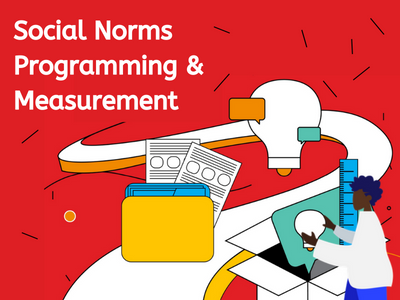With a focus on harmful practices, in particular child marriage, female genital mutilation (FGM), and sexual and gender-based violence, this course introduces participants to the foundations and characteristics of well-designed social norms change programmes, as described in the UNICEF Social Norms Programming Guide “Everybody wants to belong”.
It takes the learner on an emotive, cognitive and content journey that covers the different dimensions of social norms, guidance on how to design norms-shifting interventions, approaches, and tools to measure social norms change.
Learners will become familiar with social norms terms and concepts and explore how these influence behaviours. They will be introduced to conceptual models such as the Behavioural Drivers Model and the Socio-Ecological Model to understand the diverse factors that can shape social norms, intention, and action.
Case studies and examples of programmes addressing Child Marriage and FGM are used to introduce participants to the skills necessary to design and implement social norms interventions, with opportunities to practice and apply the learning.
In the last section, the course dives into existing approaches and tools that help measure social norms change, introducing learning to key indicators and frameworks, such as the ACT Framework for measuring social norms change related to FGM.
Learning objectives
By the end of this course, learners will be able to:
- Diagnose: identify social norms and additional social and behavioural drivers related to harmful practices.
- Design & implement: how to create evidence-based social norms change programmes.
-
Measure: how to measure social norms change.
Audience
This learning course is applicable to:
- UNICEF staff and partners working on Social and Behaviour Change on harmful practices.
- UNICEF, UNFPA programme managers engaged in the Global Programme to End Child Marriage, the UN Joint Programme to eradicate FGM, in the Spotlight programme to end violence against women and girls and/or working on these agendas.
- Social and Behaviour Change, Child Protection and M&E practitioners who have in interest in strengthening their knowledge and understanding of social norms programming and measurement.
Methodology
The course is composed of three (3) content modules.
Each module includes videos, handouts, knowledge checks, discussion forums, practice activities, and surveys.
What can learners expect to get out of the course?
- To get the most out of the learning journey, you will need to commit time and energy to learning.
- Successfully completing the course will set learners on the journey to become innovators and thought leaders in their current roles and in other roles they will take on in the future.
Length
It should take you about 6 hours in total (2 hours approx. per module) to complete this self-paced course.
Syllabus
The course is structured as a series of three modules, each of which has a specific focus:
Module 1 - Building the Foundations
This module focuses on setting learners up for success and learning about the theories and concepts that underpin social norms and their impact on harmful practices. Learners will explore how social norms influence the world, work through several case studies, and begin to look at how to connect the learning with the real world.
Module 2 - Making it Practical
This module will build on module one and will help us delve deeper into what needs to be done to effectively design and implement a Social Norms Change Programme. Here, learners will understand how to identify driving elements of a social norms and create ideas about how to shift them. Learners will explore how to interpret research and how to draw on learnings from a range of case studies, working through scenarios in various programme contexts.
Module 3 - Rolling Up Our Sleeves
This module will help learners build a concrete understanding of social norms measurement. In this module, learners will build an understanding of the importance and role of measurement in social norms change and will be introduced to a range of key principles, tools, and approaches that guide monitoring and evaluation (M&E), exploring when each should be utilised depending on the context and objectives of the project.
Acknowledgments & Contact
The original course that has been adapted to this AGORA version was designed and developed by a team composed by Massimiliano Sani, SBC Specialist, UNICEF ESARO; Mona Aika, Child Protection Specialist, UNICEF ESARO; Alessia Radice, SBC Specialist, UNICEF HQ, Juan Andres, Gil, SBC Specialist, UNICEF WCARO; Etienne Kilian Reussner, SBC Officer, UNICEF WCARO; Cairn Verhulst, Child Protection Specialist, UNICEF WCARO; Catherine Muller, Gender Specialist, UNICEF WCARO; Valeria Costa, Technical Adviser, CISP; Rachel Litoroh, M&E Specialist, CISP; Noleen Sang and Nerida Nthamburi, Girls not Brides; and Michael Ngigi, Grace Archer and Akinyi Odera, ThinkPlace.
Testing was conducted by Mana Shune, Jaffer Kiruya, Michele Stella, Valeria Costa and Maureen Pacho.
For queries, please contact Alessia Radice at aradice@unicef.org and/or Massimiliano Sani at masani@unicef.org
For quick support, ALL UNICEF LEARNERS should submit requests through the Service Gateway portal to Report an IT issue.
